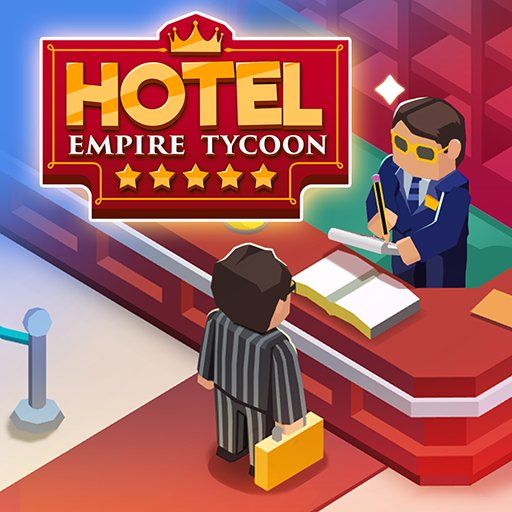Idle Police Tycoon Mod is a strategic idle management game that puts you in charge of a small precinct and challenges you to grow it into a high-performing law enforcement network. Your job is to coordinate departments, hire and train staff, process cases, arrest criminals, and expand into new districts. Because it blends idle income with hands-on decision-making, the game rewards both short play sessions and thoughtful long-term planning. You can log in for a few minutes to queue upgrades or spend longer sessions optimizing workflows, balancing budgets, and unlocking specialized units.
From day one, you manage the entire pipeline: reports arrive at the front desk, cases move through investigation, officers carry out arrests, and the jail houses offenders while your station earns money. Every upgrade accelerates this loop. As crimes get tougher and cases pile up, you will fine-tune staff assignments, improve infrastructure, and open new divisions to keep operations smooth. The result is a satisfying sense of growth, where every improvement you make is visible in faster processing times, fuller cells, and a healthier cash flow.
Crucially, Idle Police Tycoon respects your time. While you are away, the precinct continues to generate income, letting you return to a larger budget and new opportunities. Nevertheless, strategic players gain a real edge by making smart choices: matching departments to crime types, upgrading the right bottlenecks, and timing expansions to avoid waste. With clear feedback and intuitive controls, the game remains accessible to beginners yet deep enough for seasoned tycoon fans.
Features of Idle Police Tycoon
Complete Case Pipeline
Cases travel through a logical flow: reception records reports, investigators analyze evidence, officers carry out arrests, and the jail holds offenders. By reducing friction at each stage, you speed up the entire system and multiply earnings.
Department Specialization
Different crimes benefit from different departments. Building the right rooms and assigning staff with matching roles increases success rates and shortens processing times. Specialization turns a chaotic station into a well-oiled machine.
Staff Hiring and Growth
Hire receptionists, investigators, patrol officers, and specialized units. Each role matters. Upgrading desks, lockers, equipment, and training improves efficiency and raises your station’s capacity.
Infrastructure and Technology
Open new rooms, expand storage, and invest in technology to unlock stronger upgrades. Choosing when to upgrade and when to save for the next expansion is central to steady, sustainable growth.
Challenging Criminals and Special Units
Some criminals require more than a routine patrol. Build elite units and isolation cells to handle risky arrests, ensuring your officers remain safe and your precinct stays productive.
District Expansion
As your station improves, you unlock new districts with fresh challenges and higher rewards. Each district tests your ability to scale operations without creating new bottlenecks.
Idle Earnings With Active Strategy
Income continues while you are offline, but active play lets you identify weak links, schedule timely upgrades, and seize big opportunities for exponential growth.
How to Play Idle Police Tycoon
Step 1: Start Operations at the Front Desk
Begin by ensuring your front desk can handle incoming reports. Hire at least one receptionist, add seating if needed, and keep the line moving. Because every case enters through reception, delays here slow the entire station. Early on, a single upgrade to the front desk often delivers a noticeable boost across your pipeline.
Step 2: Build the First Investigation Room
Open a basic investigation room and assign one or two investigators. Keep an eye on their workload. If files are piling up, add another desk or upgrade their tools. Remember: investigation speed determines how quickly officers receive actionable cases, so strengthening this stage pays dividends.
Step 3: Equip and Schedule Patrols
Once investigations generate solvable cases, patrol officers must carry out arrests. Provide lockers, gear, and a clear path from the investigation room to dispatch. If arrests stall, check for missing staff, inadequate equipment, or overcrowded corridors. Smooth the path, and your revenue will rise.
Step 4: Maintain the Jail
Arrests bring offenders to your jail. Expand cells as needed and ensure guards are available. A full jail can halt arrests, which then backs up investigations and reception. Keeping some capacity in reserve prevents costly shutdowns.
Step 5: Specialize by Crime Type
As new crime types appear, open departments suited to them. Specialization improves processing times and success rates. If you spot recurring patterns, adjust staffing to match. A carefully specialized layout reduces wasted effort and maximizes throughput.
Step 6: Identify and Fix Bottlenecks
Watch where cases slow down. Is reception swamped? Are investigations underpowered? Are officers waiting on equipment? Fix one bottleneck at a time, then reassess. This iterative approach avoids overspending and ensures each upgrade has visible impact.
Step 7: Invest in Technology and Infrastructure
Use your budget to unlock technology upgrades that boost capacity, speed, or rewards. At the same time, expand critical rooms and storage. A balanced upgrade path keeps pace with rising case complexity and prevents one department from overwhelming the rest.
Step 8: Prepare for High-Risk Arrests
Some criminals demand special handling. Build elite units, train officers accordingly, and ensure isolation cells are ready. These arrests can be slower but often deliver bigger payouts and tangible progress toward district milestones.
Step 9: Manage Energy and Resources Wisely
Every expansion has a cost. Monitor the resources required to open rooms, place furniture, or hire staff. If you hit a cap, consider consolidating: upgrade existing stations, optimize routes, and delay nonessential purchases until revenue improves.
Step 10: Expand Into New Districts
When your station runs efficiently, unlock the next district. New areas introduce higher stakes and broader opportunities. Bring forward your best practices—clear reception, strong investigations, fast patrols, and reliable jail capacity—then scale them to meet the new demand.
Step 11: Optimize the Loop
As you progress, repeat the cycle: review metrics, reduce friction, and push the next milestone. Focus on compounding gains small time savings at each step create large increases in total throughput. Over time, your precinct transforms into a highly optimized network that practically runs itself.
Conclusion
Idle Police Tycoon succeeds because it makes every decision matter. A faster front desk feeds investigations. Strong investigations empower patrols. Efficient patrols keep the jail active. Each link in the chain amplifies the next, so improvements compound beautifully. The result is a loop that feels fair, intuitive, and rewarding.
For new players, the best approach is simple: fix bottlenecks one by one, prioritize upgrades with visible impact, and keep some jail capacity in reserve. For experienced tycoon fans, deeper optimization awaits. Department specialization, staff balancing, route planning, and well-timed technology upgrades unlock rapid growth and smooth district expansion. Because the game continues to generate income while you are away, your careful planning pays off every time you return.

























